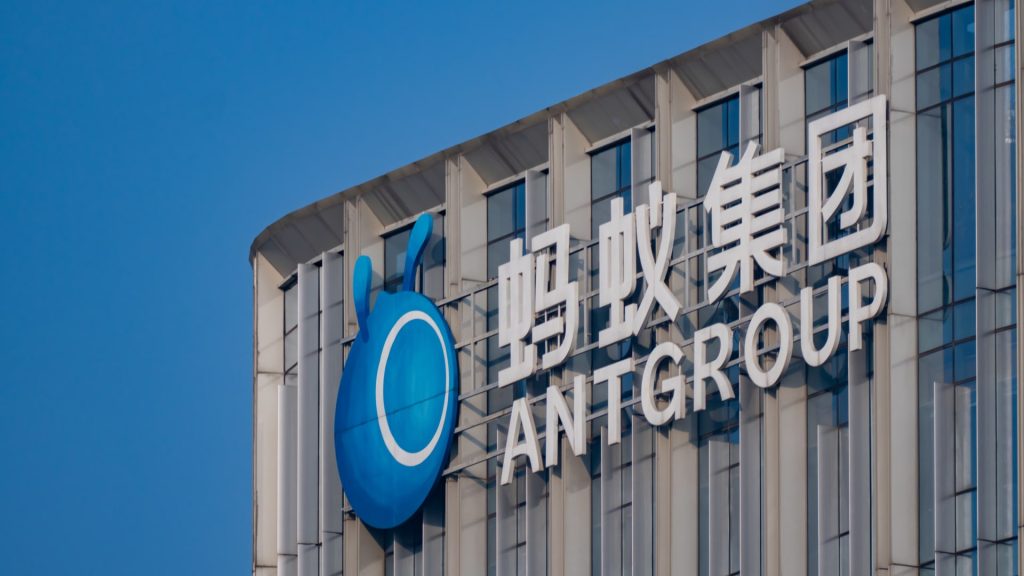In a significant move to enhance its artificial intelligence (AI) capabilities, Ant Group, an affiliate of Alibaba, is integrating both Chinese and U.S.-manufactured semiconductors into its AI training processes. This strategy aims to optimize the efficiency and cost-effectiveness of AI model training while reducing dependency on single suppliers like Nvidia. The announcement also highlighted Ant Group’s advancements in healthcare AI solutions, further showcasing its commitment to leveraging technology for broader applications.
| Article Subheadings |
|---|
| 1) Ant Group’s Semiconductor Strategy |
| 2) Advancements in AI Model Training |
| 3) Impact on Healthcare Solutions |
| 4) Geopolitical Context and Implications |
| 5) Future Outlook for Ant Group |
Ant Group’s Semiconductor Strategy
Ant Group is keenly focusing on a dual semiconductor strategy, adopting both domestically produced and foreign-made chips to fuel its artificial intelligence technologies. By utilizing chips from various suppliers, including industry giants like Alibaba and Huawei, as well as alternatives from Advanced Micro Devices and other Chinese manufacturers, the company aims to diversify its sources and mitigate risks associated with dependency on a single supplier. This approach not only addresses supply chain vulnerabilities but also capitalizes on the strengths of different chip manufacturers. Reports indicate that this method has become increasingly prevalent in the sector, known as a “mixture of experts” approach, where varying networks are tapped to train models more effectively.
Advancements in AI Model Training
In a recent declaration, Ant Group revealed their ability to sustain efficient AI model training using lower-cost hardware, significantly cutting down on computing costs. The company asserted that they had managed to reduce expenses by 20% while developing their own MoE (Mixture of Experts) models. This achievement underlines Ant’s commitment to improving operational efficiencies while simultaneously integrating innovative technology into their processes. The strategic choice of hardware aligns with broader industry trends emphasizing the importance of cost-effective solutions and sustainability in AI training.
Impact on Healthcare Solutions
Ant Group’s advancements extend into the realm of healthcare, where the company announced major upgrades to its AI solutions already in use by seven prominent hospitals and healthcare institutions located in cities including Beijing, Shanghai, Hangzhou, and Ningbo. These enhancements are powered by a combination of technologies, including DeepSeek’s R1 and V3 models, Alibaba’s Qwen, and Ant’s proprietary BaiLing. The healthcare AI model is engineered to respond to queries regarding medical topics, aiding in the delivery of better patient services and improving overall efficiency within medical institutions. This integration of AI into the healthcare sector is believed to promote better outcomes for patients as hospitals leverage these tools for enhanced service delivery.
Geopolitical Context and Implications
The evolving landscape of AI development is not devoid of geopolitical implications, particularly concerning China’s access to advanced semiconductors. The U.S. government has implemented measures to restrict Chinese companies from acquiring the highest-grade chips crucial for training sophisticated AI models. Despite this, companies like Nvidia are still permitted to sell lower-end chips to China, which may facilitate continued advancements in less complex AI systems. The restrictions underscore broader trade tensions and strategic concerns surrounding technological supremacy and national security. As Ant Group continues to innovate within these constraints, the delineation of a flexible strategy becomes increasingly significant.
Future Outlook for Ant Group
Looking ahead, Ant Group seems poised for growth as it leverages cutting-edge technology while navigating an uncertain geopolitical environment. The mix of domestic and international supply channels may provide the resilience needed to thrive amidst external challenges. As their AI-driven solutions gain traction in various sectors, particularly healthcare, the company is likely to maintain a pivotal role within the technology landscape in China and beyond. By capitalizing on strategic partnerships, technological innovation, and adaptive methodologies, Ant Group is setting a foundation for sustained success and impact.
| No. | Key Points |
|---|---|
| 1 | Ant Group is diversifying its semiconductor sources to enhance AI capabilities. |
| 2 | The company reported a 20% reduction in AI training costs through efficient hardware use. |
| 3 | Ant’s healthcare AI solutions have been adopted by key hospitals across major Chinese cities. |
| 4 | Geopolitical tensions influence China’s access to advanced semiconductors for AI development. |
| 5 | Ant Group is preparing for future growth by implementing innovative technology and strategies. |
Summary
In summary, Ant Group’s proactive initiatives to integrate a diverse range of semiconductor sources and advance its AI technologies highlight its commitment to innovation and efficiency. The company’s efforts not only bolster its operational capabilities but also push the boundaries of what AI can achieve, particularly in sectors like healthcare. Navigating the complexities of a competitive landscape influenced by geopolitical factors will certainly challenge Ant Group, yet its strategic approach positions it well for future developments in the technology sector.
Frequently Asked Questions
Question: What does Ant Group specialize in?
Ant Group specializes in technology, particularly in digital payment solutions through its platform Alipay, and is aggressively expanding its capabilities in artificial intelligence.
Question: How does Ant Group’s AI solution benefit the healthcare sector?
Ant Group’s AI solutions enhance patient care by providing accurate responses to medical inquiries, improving service delivery, and facilitating better hospital operations.
Question: What are the geopolitical challenges facing Chinese AI development?
Chinese AI development faces challenges such as export restrictions imposed by the U.S. on advanced semiconductors, which can limit access to critical technological resources necessary for sophisticated AI training.
